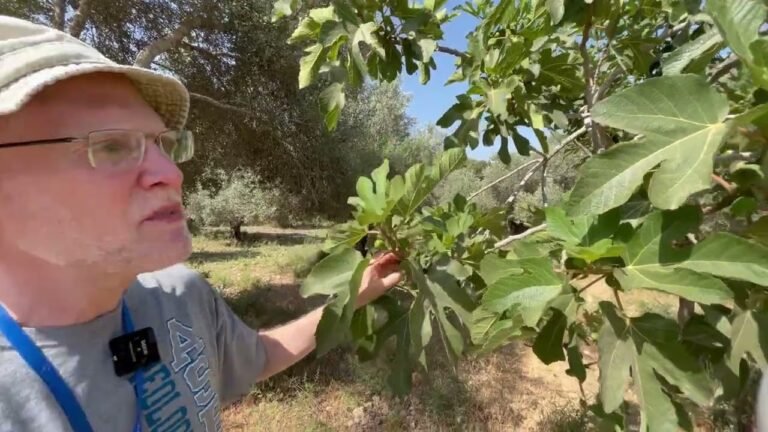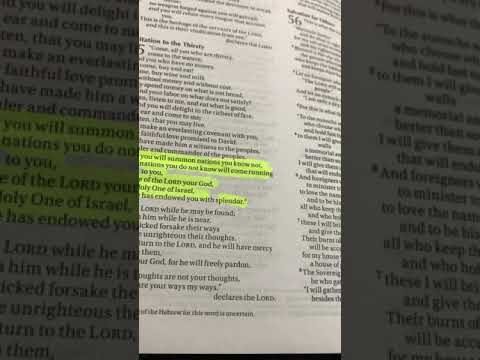The Curious Curse: Jesus and the Fig Tree
In the Bible, the cursing of the fig tree by Jesus is a powerful and symbolic moment that holds deep meaning and significance. This event, found in the books of Matthew and Mark, showcases Jesus’ authority and highlights the consequences of spiritual barrenness. Join us as we delve into the profound implications of this miraculous act and uncover the timeless lessons it imparts to believers today.
What is the meaning of Jesus cursing the fig tree?
The curse of the fig tree by Jesus serves as a powerful lesson about the importance of true productivity. Despite having many leaves, the tree was fruitless, leading Jesus to demonstrate the consequences of mere appearance without substance. This story urges us to avoid making excuses for our own lack of productivity, emphasizing the need to strive for genuine fruitfulness in all aspects of our lives.
Where did Jesus curse the fig tree in Luke?
Luke recounts a powerful parable in 13:6–9 where Jesus tells of a vineyard owner’s disappointment with a barren fig tree. Despite the owner’s patience and care, the tree fails to bear fruit for three years, leading him to consider cutting it down. This story serves as a poignant lesson on the importance of producing good fruit in our lives.
The passage in Luke challenges us to reflect on our own spiritual growth and the fruits of our labor. Just as the fig tree was expected to bear fruit in the vineyard, we are called to produce good works and live out our faith in a tangible way. Jesus’ words remind us of the significance of our actions and the impact they have on our spiritual journey.
Ultimately, the parable in Luke serves as a reminder of God’s patience and grace towards us. Just as the vineyard owner gave the fig tree one last chance to bear fruit, God continues to offer us opportunities for growth and renewal. May we heed Jesus’ words and strive to cultivate a life that bears good fruit, bringing glory to God.
What does the fig tree symbolize spiritually?
The spiritual meaning of the fig tree extends beyond its physical presence, representing wisdom, abundance, and success in various cultures throughout history. This ancient tree has been revered for its connection to knowledge and prosperity, with its fruit symbolizing the rewards of hard work and dedication. From Greek mythology to biblical references, the fig tree holds a significant place in spiritual teachings and beliefs.
As a symbol of flourishing wisdom and prosperity, the fig tree serves as a reminder to cultivate our inner growth and strive for success in all aspects of life. Its lush foliage and bountiful fruit embody the rewards that come from nurturing our minds and spirits, encouraging us to seek knowledge and abundance in our pursuits. By understanding the spiritual significance of the fig tree, we can tap into its powerful energy and align ourselves with the wisdom and success it represents.
Unraveling the Mystery of Jesus’ Fig Tree Encounter
In a pivotal moment of his ministry, Jesus encountered a barren fig tree and cursed it for not bearing fruit. This seemingly harsh action has sparked debate and curiosity among scholars and believers for centuries. What was the significance of this encounter and what message was Jesus trying to convey through this symbolic act?
As we delve deeper into the mystery of Jesus’ fig tree encounter, we uncover layers of meaning that speak to the importance of bearing spiritual fruit in our lives. Just as the fig tree was expected to produce fruit in its season, we are called to live a life of purpose and productivity, not just for ourselves but for the greater good. Through this powerful parable, Jesus challenges us to reflect on our own lives and consider how we can bear fruit that will nourish and sustain those around us.
The Enigmatic Power of Jesus’ Curious Curse
With just a few words, Jesus was able to command even the forces of nature. In one famous incident, he cursed a fig tree for not bearing fruit out of season, causing it to wither and die instantly. This enigmatic power displayed by Jesus left his disciples in awe and wonder, as they witnessed firsthand the authority he held over all creation.
The curious curse of Jesus not only demonstrated his divine power, but also served as a powerful lesson for his followers. By using the fig tree as a metaphor for faith and spiritual growth, Jesus taught his disciples the importance of bearing fruit in season and staying connected to him as the true source of life. This profound message continues to resonate with believers today, reminding us to remain steadfast in our faith and to trust in the transformative power of Jesus.
Through his miraculous acts and teachings, Jesus constantly challenged the norms and expectations of his time, revealing a deeper spiritual truth that transcended the physical world. His curious curse on the fig tree serves as a powerful reminder of his unique ability to bring about change and transformation in ways that are both mysterious and profound. Jesus’ enigmatic power continues to captivate hearts and minds, inviting us to delve deeper into the mysteries of his divine nature.
Delving into the Significance of the Fig Tree in Jesus’ Story
The fig tree holds a special significance in Jesus’ teachings, symbolizing both judgment and potential for growth. In the Gospels, Jesus curses a barren fig tree as a metaphor for unfruitfulness and hypocrisy. This powerful imagery serves as a warning to those who claim to be followers of God but do not bear good fruit in their lives.
However, the fig tree also offers a message of hope and restoration. In other passages, Jesus uses the fig tree to illustrate the potential for growth and transformation. Just as a fig tree can bear fruit when properly cared for, so too can individuals experience spiritual renewal and produce good works through their faith in God.
Ultimately, the fig tree serves as a powerful reminder of the importance of authenticity and sincerity in one’s relationship with God. By delving into the significance of the fig tree in Jesus’ story, we are challenged to examine our own lives and ensure that we are bearing good fruit in accordance with God’s will.
In the story of Jesus cursing the fig tree, we are reminded of the power of faith and the importance of living a life of genuine fruitfulness. Through this powerful act, Jesus challenges us to examine the state of our own hearts and actions, urging us to bear good fruit in all that we do. Just as the fig tree withered away at the command of Jesus, may we too be inspired to cultivate a life of purpose, integrity, and love, so that we may truly glorify God in all that we do.







